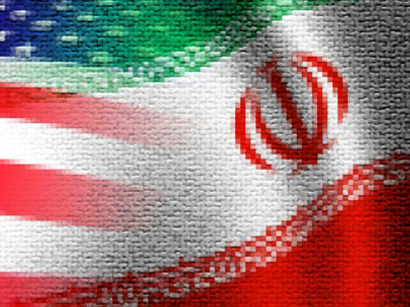The analysis found no reliable information pointing to imminent Iranian-backed terrorist plots in the Western Hemisphere, said sources who spoke on the condition of anonymity because of the secretive nature of the report and because it had not yet been sent to Congress.
The State Department declined to comment on the document.
The findings are likely to baffle lawmakers who pushed legislation that mandated the State Department to produce the report, along with a strategy for countering "Iran`s growing hostile presence and activity in the Western Hemisphere."
Support for the legislation rose after the Justice Department claimed in 2011 that Iran attempted to hire a Mexican drug cartel to assassinate a Saudi diplomat by bombing a Washington restaurant. An Iranian-American was recently sentenced to 25 years in prison after pleading guilty to conspiring in the plot with the Iranian military.
Although Congress cited that case as a reason for the State Department to more closely scrutinize Iran`s presence in the hemisphere, the Hollywood-like and far-fetched quality of the case also spawned skepticism among foreign policy insiders.
"I don`t believe the State Department ever wanted to do this report. We sort of forced them into this position," Rep. Jeff Duncan, South Carolina Republican, said Friday.
Mr. Duncan, who worked with Rep. Brian Higgins, New York Democrat, in pushing legislation that mandated the report, said State Department officials have privately "played down" the Latin American activities of Iran and Hezbollah.
He explained that, during a congressional visit to Paraguay in August, he was briefed by a senior member of the South American nation`s police forces.
"It was very clear to him that the Iranians and their proxy are very active in that region," Mr. Duncan said. "But that was different from a watered-down assessment we got from State Department officials there at the U.S. Embassy in Paraguay," he said. "They really played down the Hezbollah and Iranian activity."
One source, outside the government but close to the Obama administration, said the State Department report will conclude that "yes, there are a lot more Iranian agents in the region and that tabs are being kept on them."
Although U.S. officials are "not foreclosing the possibility that networks could be activated, there is no hard evidence of any plots," the source said.
Such comments suggest that the report drew from the same well of intelligence that resulted in the carefully worded analysis of Iran in the State Department`s annual Country Reports on Terrorism last month.
The words "Western Hemisphere" and "Latin America" were notably absent from the assertion that "Iran and Hizballah`s terrorist activity has reached a tempo unseen since the 1990s, with attacks plotted in Southeast Asia, Europe, and Africa."
Although the analysis found that Iran has "continued to try to expand its presence and bilateral relationships" in Latin America and that sympathizers in the region "provide financial and ideological support" to al Qaeda and Hezbollah, the outright conclusion was that "there were no known operational cells of either al-Qa`ida or Hizballah in the hemisphere."
Such findings have prompted some analysts to praise the State Department and the Obama administration for standing up to attempts by some in Congress to hype the Iranian threat.
"Most of the evidence that`s been cited publicly by these people who are claiming Iran is using Latin America as a base to launch attacks has either been disproven or remains questionable," said Christopher Sabatini, the head of policy at the Council of the Americas in New York.
More about:















































